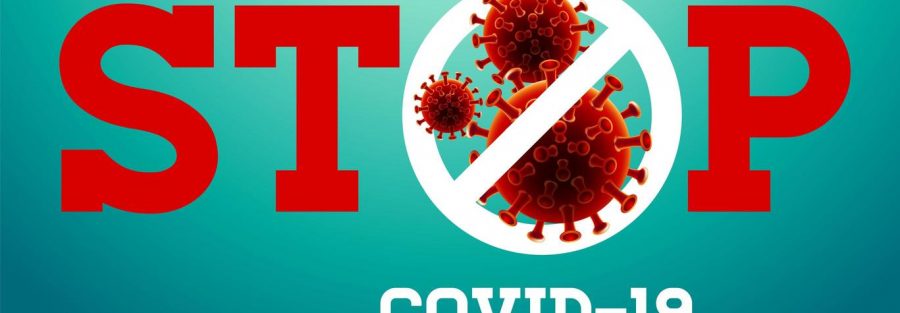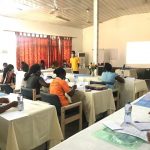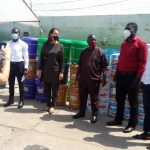During an orientation and stakeholder meeting in the Ashanti Region towards the commencement of the second phase of a ‘Reproductive Health Education and Services for Young people and Adolescents’ project, Alliance for Reproductive Health Rights (ARHR) heard a comforting account from Madam Cecilia Yeboah who was a participant at the meeting.
Madam Cecilia is a 56 year old widow with four children; three girls and a boy. She farms and engages in petty trading in order to take care of the children. Her third child, who is a teenager got pregnant and the man responsible for the pregnancy could not be found. An additional responsibility of taking care of her child and the baby became a burden on her. She became extremely vigilant and possessive of her last child who is also a girl; as a way to protect her from teenage pregnancy. She then heard of the project and encouraged her last child to engage in the activities of the project. Her last child who is nineteen (19) years of age is currently an Adolescent Health Champion of the project who helps other young people to understand issues regarding their Sexual and Reproductive Health and Rights (SRHR) while referring those with peculiar issues to health facilities. Madam Cecilia reveals how she has peace of mind now knowing that her last child is receiving adequate, timely and informed education on her sexual and reproductive health and rights. This and many more accounts are the reason why SRHR education and services matter especially during this covid-19 pandemic.
It is no error that this year’s World Population Day celebration has been earmarked towards raising awareness on women’s and girls’ need for SRHR education and services especially during this covid-19 pandemic. The imperativeness of SRHR education and services cannot be overlooked. At a time like this when all resources and attention are geared towards fighting the covid-19 pandemic, it is essential to ensure women and girls are not denied basic SRHR education and services. Gains made over the years in ensuring SRHR education and services were available to all women and girls need to be safeguarded.
There is no doubt that covid-19 has greatly impacted the world in diverse ways. Front line health workers are being exposed to covid 19 due to lack of Personal Protection Equipment (PPE); a result of disruptions in supply chains across the world. Some restrictions imposed in countries towards curbing the spread of covid 19 still exists. People do not have the freedom to engage in activities they used to prior to covid 19. For women and girls who need SRHR education and services, this period is most difficult for them. SRHR education and services are being sidelined as health workers are needed most to attend to covid 19 related issues. Also, the fear of contracting covid 19 at health facilities alone keep these women and girls away from visiting the few health facilities available to offer SRHR services. Covid 19 is equally exposing women and girls to gender-based violence. An increase in teenage and unwanted pregnancies is a predicted outcome of these challenges.
Covid 19 restrictions have brought a halt to community outreach and education programmes which gave women and girls information on SRHR and services. Pregnant women and girls who need ANC are equally challenged as cost of ANC during covid 19 has increased. Access to ample time at health facilities have reduced as the few health workers available to attend to these pregnant women and girls need to attend to several other people.
World Population Day is commemorated annually to raise awareness of various population problems such as the importance of SRHR, gender equality, hunger, maternal health and human rights. This year, despite efforts to curb covid 19, we are putting the brakes on COVID-19 to safeguard the health and rights of women and girls. We are calling on world leaders and decision makers to include SRHR in their response towards the covid 19 pandemic. Women and girls do not have to suffer an additional pandemic alongside covid 19.
In our bid to control the world’s population and ensure that there are adequate resources to support the increasing population, there is also the need to ensure that healthy societies are created. Women and girls hold the key to creating healthy societies and so their needs should be paramount.



